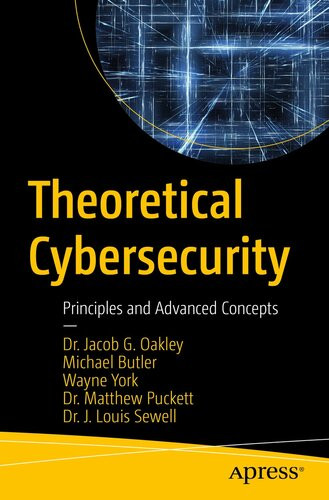

Most ebook files are in PDF format, so you can easily read them using various software such as Foxit Reader or directly on the Google Chrome browser.
Some ebook files are released by publishers in other formats such as .awz, .mobi, .epub, .fb2, etc. You may need to install specific software to read these formats on mobile/PC, such as Calibre.
Please read the tutorial at this link: https://ebookbell.com/faq
We offer FREE conversion to the popular formats you request; however, this may take some time. Therefore, right after payment, please email us, and we will try to provide the service as quickly as possible.
For some exceptional file formats or broken links (if any), please refrain from opening any disputes. Instead, email us first, and we will try to assist within a maximum of 6 hours.
EbookBell Team

0.0
0 reviewsThere is a distinct lack of theoretical innovation in the cybersecurity industry. This is not to say that innovation is lacking, as new technologies, services, and solutions (as well as buzzwords) are emerging every day. This book will be the first cybersecurity text aimed at encouraging abstract and intellectual exploration of cybersecurity from the philosophical and speculative perspective. Technological innovation is certainly necessary, as it furthers the purveying of goods and services for cybersecurity producers in addition to securing the attack surface of cybersecurity consumers where able.
The issue is that the industry, sector, and even academia are largely technologically focused. There is not enough work done to further the trade―the craft of cybersecurity. This book frames the cause of this and other issues, and what can be done about them. Potential methods and directions are outlined regarding how the industry can evolve to embrace theoretical cybersecurity innovation as it pertains to the art, as much as to the science.
To do this, a taxonomy of the cybersecurity body of work is laid out to identify how the influences of the industry’s past and present constrain future innovation. Then, cost-benefit analysis and right-sizing of cybersecurity roles and responsibilities―as well as defensible experimentation concepts―are presented as the foundation for moving beyond some of those constraining factors that limit theoretical cybersecurity innovation. Lastly, examples and case studies demonstrate future-oriented topics for cybersecurity theorization such as game theory, infinite-minded methodologies, and strategic cybersecurity implementations.